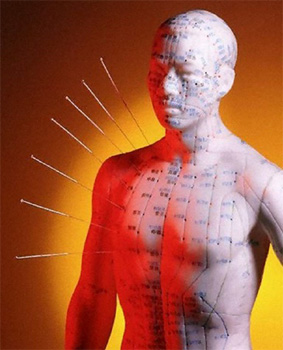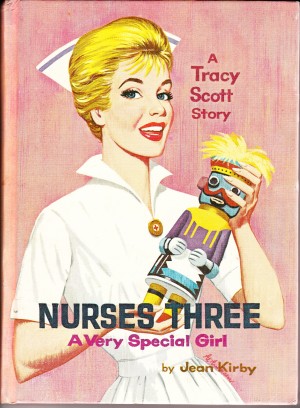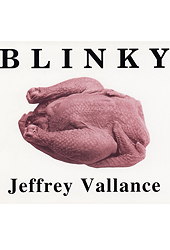Medicine
Where Are You Planning to Stick That Doll?
When most people go book-shopping, they search for best-sellers. However, this is my kind of material, purchased this weekend and shared here for your enjoyment.
Lower image is the outer back cover.
Posted By: Paul - Tue Jul 13, 2010 -
Comments (3)
Category: Medicine, Books, 1960s
Allow Me To Make A Point

Posted By: Nethie - Sat Jul 03, 2010 -
Comments (10)
Category: Body, Health, Medicine, Science, Sexuality
Beyond Belief Extra – Fiat Novitas!

And if you can have an atheist congregation, how long will it be before there’s an atheist preacher? Well this is exactly the situation the Dutch Protestant Church found themselves in recently after one of their number, Klass Hendrikse, published a book called Believing in a God who does not exist. Surprisingly, they have decided to do nothing, concluding that Hendrikse’s beliefs, which include that God is not a real being but just a word for people’s shared feelings, are not so different from many other liberal theologies (RNW).
Slightly less tolerance was shown to Mark Edward Tynan of the Christian faith group “Servants of Jesus” this week when the Australian health watchdog banned him from practising any form of mental health medicine. The Psychologists Tribunal sadly took a dim view of Tynan’s opinion that dissociative identity disorder was caused by demons, and that one child’s mental health problems were due to her parents having dedicated her life to Satan. His innovative treatment plans of prayer and exorcisms were also roundly disapproved of (Telegraph(AU)).
Someone else to lose their job over a wacky belief this week is Baroness Jenny Tonge, shadow health spokesperson for the UK’s Liberal Democrat Party. Her problems started when an American blogger called Stephen Lendman resurrected the old “organ harvesting” myth in an article that accused Israeli medical teams sent to Haiti of doing just that. The allegations appeared in the Palestine Telegraph ,of which Tonge is patron, but it was for her suggestion to the Jewish Chronicle that an inquiry should be held to “dispel any rumours” that she got into trouble. Unfortunately for her, Liberal Party leader Nick Clegg did not feel the Israeli doctors should have to prove themselves innocent of any and all nonsense flung their way, and promptly removed her from her post (Spiked).
More in extended >>
Posted By: Dumbfounded - Tue Feb 16, 2010 -
Comments (8)
Category: Disasters, Eccentrics, Government, Medicine, Religion
Shaking Hands With Death
Each year the BBC broadcasts the Richard Dimbleby Lecture, a 50 minute speech by a well-known figure on a topical subject they feel strongly about. Previous speakers include Richard Dawkins, the Archbishop of Canterbury, Bill Clinton and the Prince of Wales; this year the lecture was by author Sir Terry Pratchett, and read for him by actor Tony Robinson. Read for him because Pratchett has a rare form of Alzheimer’s disease called PCA, and is facing a future where his mental faculties will desert him piece by piece until all language, memory and reason are gone. Ranged against that ending is Pratchett’s own wish, to die in a chair in his garden, with a brandy in one hand and Thomas Tallis playing on his iPod. Hence his lecture is a frank, powerful and impassioned call that he and others in similar situations be allowed to die their way, and that those who assist them to do so not be prosecuted for their cooperation.For those not able to sit through all 6 parts, an edited transcript is available here.
Posted By: Dumbfounded - Wed Feb 03, 2010 -
Comments (3)
Category: Celebrities, Death, Hospitals, Medicine
The Musical Doctor
This is one demented video. Please note how Mae Questal, the voice of Betty Boop, is like a living incarnation of that cartoon icon.
Posted By: Paul - Fri Oct 23, 2009 -
Comments (4)
Category: Humor, Medicine, Music, Cartoons, 1930s
Petey and Pokey
Visit their homepage here.Courtesy of the magnificent Denny Lien.
Posted By: Paul - Thu Jul 30, 2009 -
Comments (7)
Category: Medicine, Advertising, Reader Recommendation
So Weird It Hurts?

Cartoon expletives aside, a bit of invective can do you the world of good, or so said scientists recently. A research team from from Keele University asked volunteers to hold their hand in freezing water for as long as they could manage while repeating either an innocuous word or the swear-word of their choice. The swearers held out for an average of two minutes, while non-swearers managed only 1 minute 15 seconds. But while Rohan Byrt of the Casual Swearing Appreciation Society claimed the study demonstrated the benefits of swearing, team leader Richard Stephens warned that everyday swearing would lessen its painkilling effects. "Swearing is emotional language" he explained, "but if you overuse it, it loses its emotional attachment" (BBC News).
From this week, pregnant women throughout Britain considering "letting it out" to help with the pain might also want to direct their curses towards Dr Denis Walsh, associate professor of midwifery at Nottingham University in England. In an article in the journal Evidence Based Midwifery, Dr Walsh claimed last week that the pain of childbirth was useful and a "timeless rite of passage", and women should not be trying to avoid it with epidural anaesthesia. Walsh based his statement on the fact that the use of epidurals has almost doubled in the past two decades, claiming that in 20% of cases, the procedure was unnecessary. While some, like Dr. Justin Clarke of the Birmingham Women's Hospital, rejected Walsh's data, saying it was wrong to characterise modern women as "less stoical", others supported him, such as Mary Newburn of the National Childbirth Trust who spoke of there being an "epidural culture" (Telegraph).
But perhaps women might be convinced to trade in the needle for a fancy rubber suit? Baltimore company Under Armour has developed a hi-tech, full length bodysuit that is said to allow athletes recover more quickly after strenuous activity. Under Armour's "Recharge" range gently squeezes the athlete's body forcing excess fluid out of the muscles and back into the bloodstream over a period of hours after a workout, reversing the "pumped" effect of the exercise. Research by the University of Connecticut showed that doing so resulted in subjects feeling less soreness and swelling of the muscles and recuperating faster (Journal Gazette).
More in extended >>
Posted By: Dumbfounded - Tue Jul 14, 2009 -
Comments (3)
Category: Exercise and Fitness, Frauds, Cons and Scams, Health, Injuries, Medicine, Obscenity, Science, Experiments, Stupid Criminals, Weddings
Weird Science - Biology
Men are now obsolete, thanks to work by scientists at the Northeast England Stem Cell Institute. Professor Karim Nayernia and team have managed a "scientific first" by inducing stem cells into becoming artificial sperm in laboratory conditions. In mice, these sperm have proven able to fertilise eggs and produce viable offspring, opening the door to potential new infertility treatments in humans. Additionally, the stem cells themselves may come from either sex, raising the possibility of children being born without the traditional male input. Any such treatment is many years away however, and there are still problems to be overcome, not least that all the mice babies so far produced by this technique had abnormally short lives. Nayernia admits that the process is not perfect, but says that it could be ready for human trials in less than ten years (Telegraph).But mothers, don't kick out the old man yet, not if you want a little help with the childcare that is. A team from the "Institut des Sciences de l'Evolution" in France has confirmed a prediction of the theory of evolution that fathers will invest more in children that resemble them. A total of 30 Senegalese families were studied and the paternal investment and resemblance were quantified for each. As expected, there was a significant correlation between the resemblance and investment scores, but also between investment and the nutrition and health of the child. So it seems we fathers still have our uses, for now (Science Daily).
Animals do many weird things to avoid being eaten, from camouflage, to making themselves look bigger or more dangerous, to having a false head or eye on a less vital point to divert attackers. However, one spider has a tactic that's never been observed before; it makes decoy models of itself. The Cyclosa mulmeinensis spider of Orchid Island, near Taiwan, decorates its web with pellets of silk the same size and (to wasps) colour as itself, then hides among them. Researchers from Tunghai University were actually able to observe wasp predators attacking the decoys while the spider escaped, confirming the effectiveness of the trick. The strategy is not without risk though, by having more spider sized blobs on it, the web may also be easier for the wasps to detect (Daily Mail).
More in extended >>
Posted By: Dumbfounded - Wed Jul 08, 2009 -
Comments (6)
Category: Animals, Babies, Family, Insects and Spiders, Medicine, Science, Anthropology
American Artifacts
Here's a neat site that offers lots of strange gadgets from the past, such as this "Radio Disease Killer."
Posted By: Paul - Fri Jul 03, 2009 -
Comments (2)
Category: Frauds, Cons and Scams, Medicine, Nineteenth Century
Black Zeus’s Medical Oddities
You ever wander what a man would look like if he let his ear hair grow out?Or how about the unborn fetus of a twin?
Maybe you just want to know if there is truth to the phrase "swallow a watermelon seed and it will grow in your stomach."
FAIR WARNING. This just may mess your world up.
Click here for slideshow.
Posted By: Paul - Sat Jun 27, 2009 -
Comments (7)
Category: Body, Medicine, Reader Recommendation

| Who We Are |
|---|
| Alex Boese Alex is the creator and curator of the Museum of Hoaxes. He's also the author of various weird, non-fiction, science-themed books such as Elephants on Acid and Psychedelic Apes. Paul Di Filippo Paul has been paid to put weird ideas into fictional form for over thirty years, in his career as a noted science fiction writer. He has recently begun blogging on many curious topics with three fellow writers at The Inferior 4+1. Contact Us |








